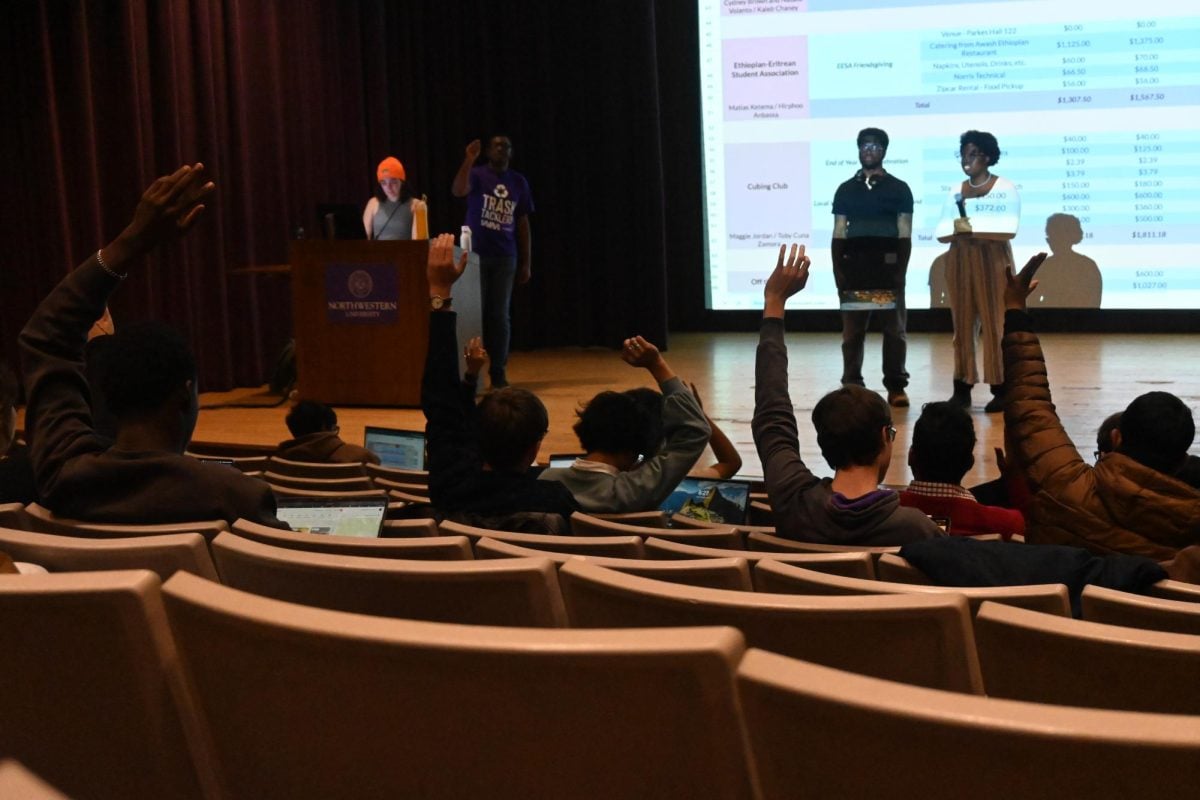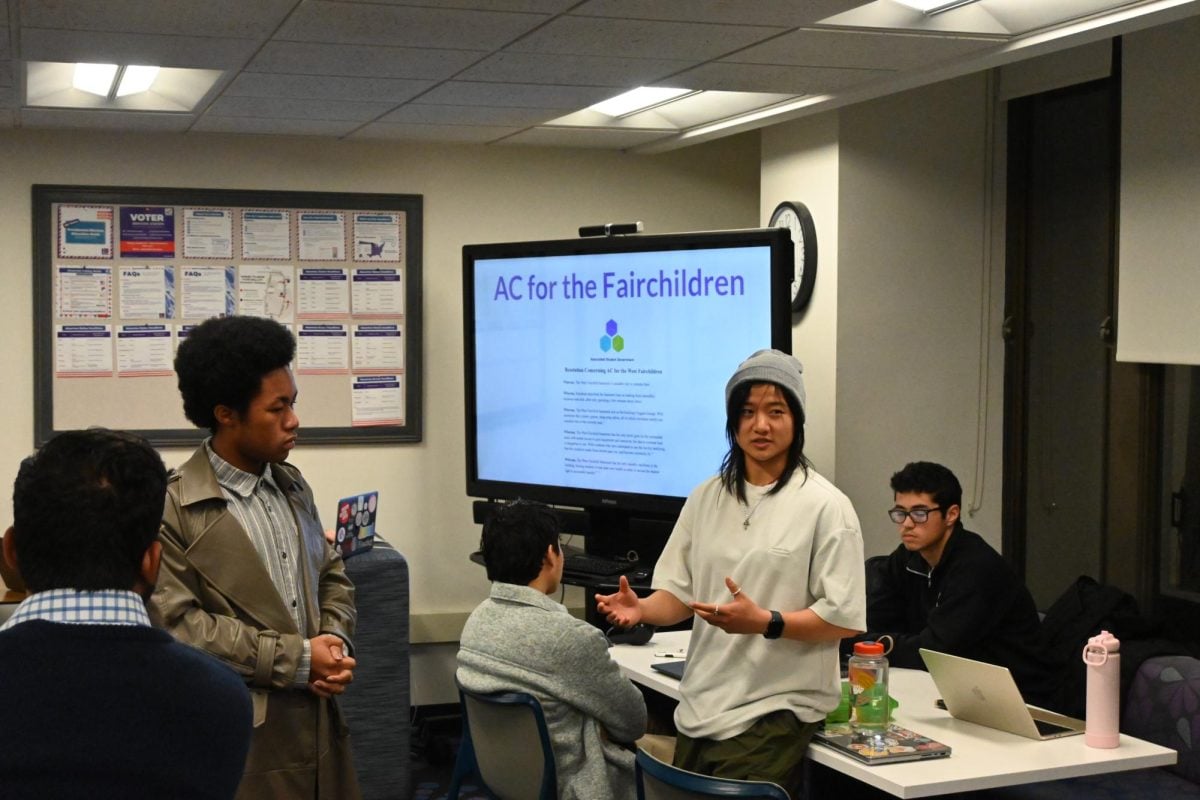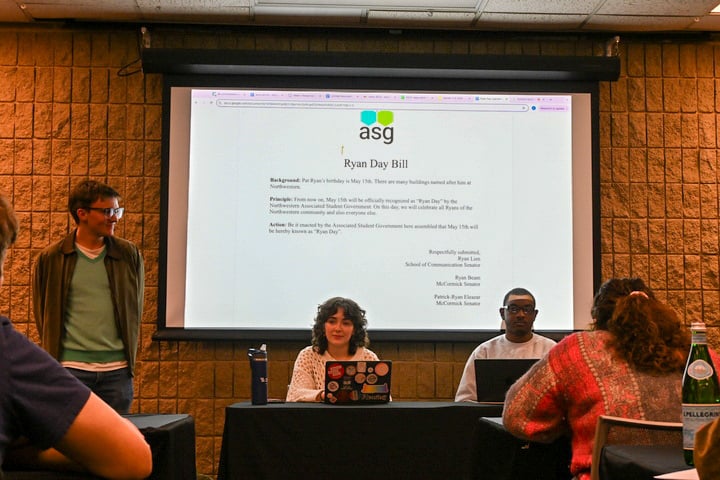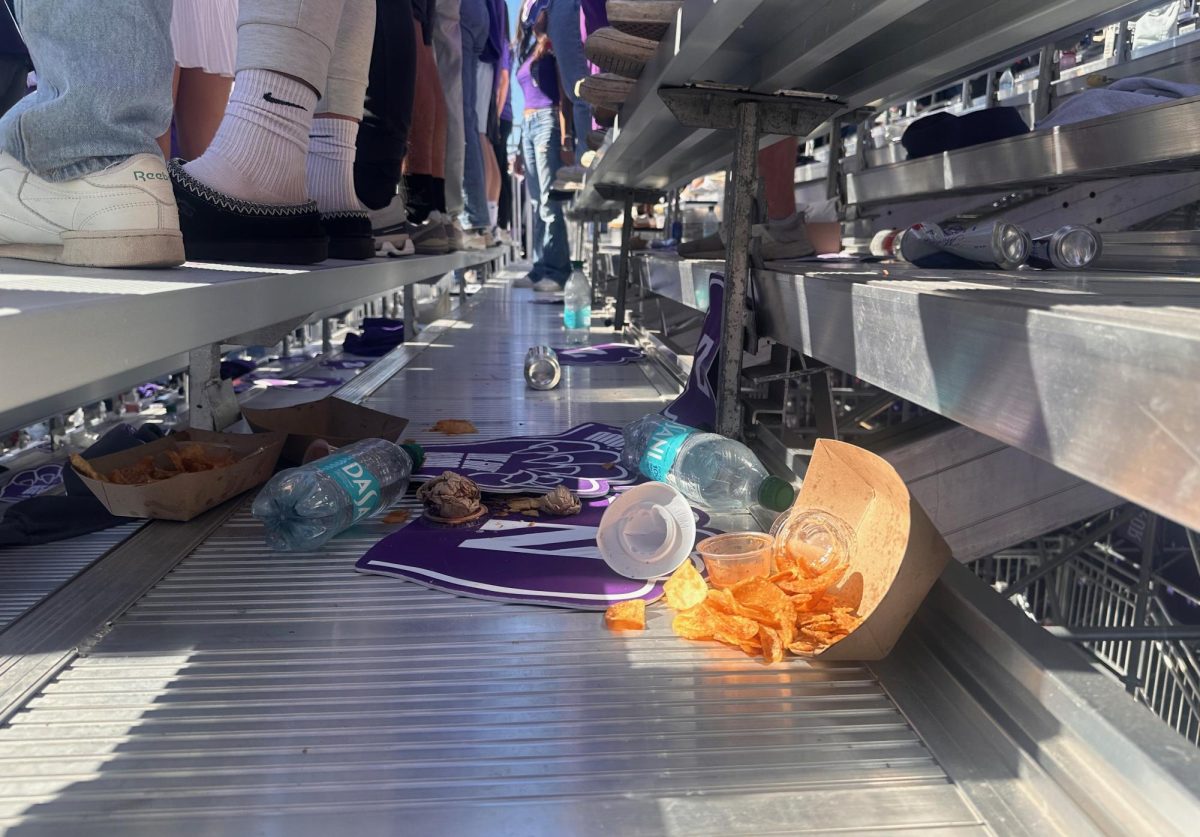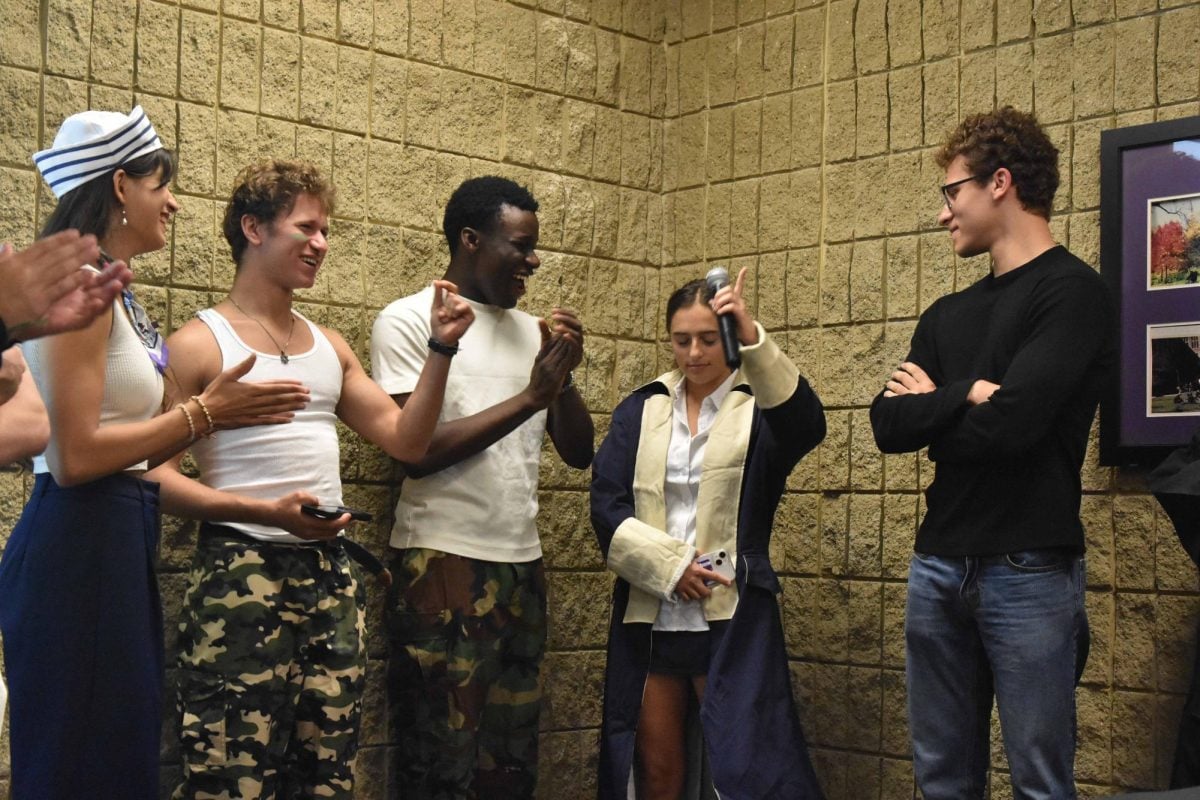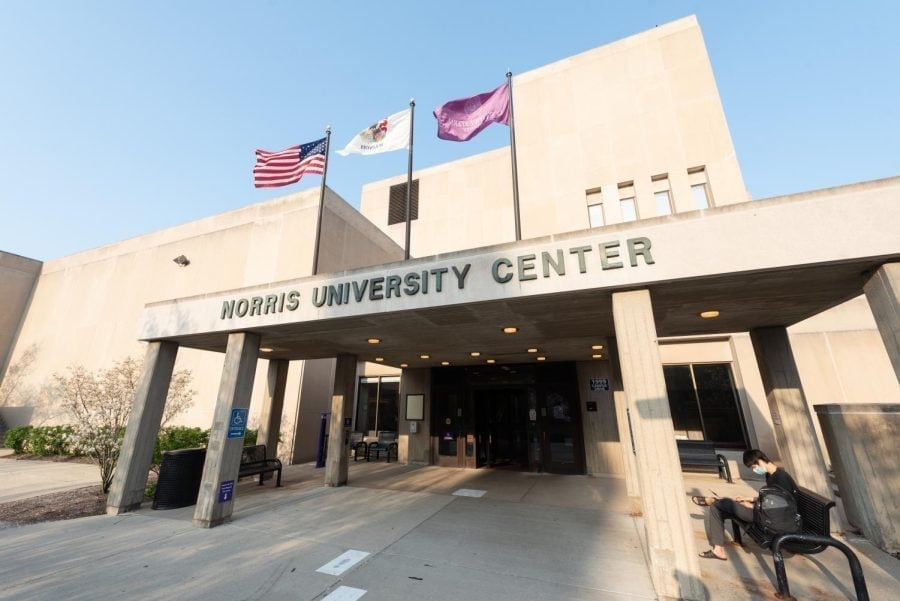With the campaign season for Northwestern’s Associated Student Government drawing to a close, the three presidential candidates outlined their specific campus policies at the second and final debate Monday night.
Although recourse to campaign slogans remained a common theme throughout the event, the participants eventually opened discussion on their proposed solutions to a variety of issues. Alcohol policy, the need for greater outreach to ASG senators and the development of relations with the University Police were among the topics debated.
The candidates for this year are: Weinberg junior Victor Shao, SESP junior Kameron Dodge and Weinberg junior Dan Tully.
One of the topics that drew the sharpest divide between the candidates was how to reform the ASG Senate. All three participants agreed the system was a broken one, and Dodge and Shao pointed to a number of ideas designed to increase senator participation and foster a sense of community within ASG. These included Shao’s proposal to expand the role of caucuses in ASG and Dodge’s requirement that every senator be part of a committee or working group.
However, Tully diverged from his opponents, arguing that it was “misguided” to focus on repairing the workings of ASG at the expense of listening to students. Tully later said he would act on his convictions even without Senate approval.
“I think once the Senate can overrule the president, that shows that the president’s hands are tied,” Tully said. “I will not be deferential to a Senate that stands in the way of progress.”
The discussion on alcohol policy largely centered on the need to amend the Responsible Action Protocol, which does not currently grant full immunity to student groups who report alcohol or drug-related medical emergencies to the authorities. All three candidates agreed that this must be changed.
“There should never be a situation where a student group leader has to choose between the life of a student and the future of their organization,” said Shao, who referred to the RAP as “vague.”
However, this discussion later merged slightly with the debate over relations with NUPD officers. Keeping with his campaign’s goal of building relationships, Dodge proposed a possible tutorial for off-campus students, which would encourage them to deal with disgruntled neighbors directly rather than involve the NUPD. Shao adopted a similar sentiment, saying the officers do not routinely break up parties and that NU students should treat them with respect.
But Tully circled back into the issue of alcohol policy when he proposed NUPD monitoring of fraternity parties, a suggestion that elicited noticeable surprise from Dodge and Shao. Under Tully’s proposal, officers would be allowed to walk through the main floor of a fraternity house in order to ensure that students were not drinking illegally.
“The more we force students to drink behind closed doors, the more we increase the risk that we all face,” Tully said.
The candidates also referenced their positions on town-gown relations, specifically the need for greater student involvement in Evanston politics. They agreed that NU’s 8,000 undergraduates had the potential to be a potent political force in Evanston, but ASG would have to organize students into voter drives and build relationships with City officials.
“It is one of those things where we have to leverage the NU student voice, and say that we’re here to stay,” said Dodge, who referenced his work with Evanston Community Foundation as a leader of Dance Marathon.
Shao agreed with Dodge, and referenced his work on safety legislation with Mayor Elizabeth Tisdahl and Dean of Students Burgwell Howard, which he said resulted in the installation of street lighting near Delta Gamma.
Each candidate was also quick to remind the audience of the fundamental ideas underlying their campaigns. Dodge, who is running for the position of co-president with Communication junior Steven Monacelli, repeatedly said his administration would focus on “shifting responsibilities and raising expectations.” Under their plan, Dodge would be in charge of student outreach while Monacelli, the current vice president of community relations, would handle the internal affairs of ASG.
“Our partnership is emblematic of how we think ASG should serve the students,” Dodge said. “We bring together unique perspectives from two communities that are certainly broad, but not exclusive.”
Dodge argued this division of responsibility would allow his administration to more easily communicate with the student body, a goal that Shao has made the centerpiece of his campaign. Shao frequently referenced meetings with student leaders, remarking that he had met with more than 100 last term.
While Dodge and Shao discussed greater communication with student leaders, Tully said he was running for “those students who feel isolated.” Tully said he would fight against the “Sheridan Road sidewalk experience,” which he defined as the inability of NU students to interact with unfamiliar peers.
Tully, who quit ASG after serving in the Senate during his freshman year, said he would work for students rather than ASG.
“Regardless of what you talk like, what you dress like, we’re all Wildcats, and that’s why I’m running,” Tully said. “It’s not about ASG; it’s about Northwestern.”
The candidates will continue to campaign until students vote on April 11.
